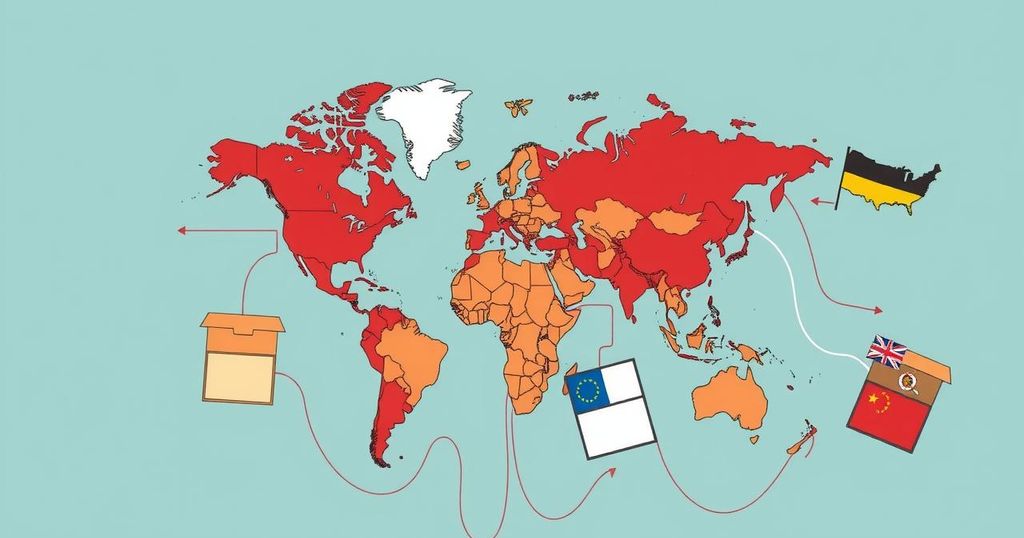Electoral Turbulence in 2024: Incumbents Ousted Amid Global Discontent
The year 2024 marked significant electoral shifts globally as voters increasingly rejected incumbents in about 70 countries, fueled by dissatisfaction over economic turmoil and political instability. Observers noted a notable rise in populist and far-right movements, while allegations of external interference further complicated democratic processes. The political landscape witnessed the decline of longstanding parties, indicative of a broader demand for transformative change amidst growing frustrations amongst the electorate.
As the global electorate cast their votes in 2024, a significant wave of discontent emerged, epitomized by voters proclaiming, “You’re fired” to many incumbents. Elections across approximately 70 countries, which represent half of the world’s population, revealed a distinct trend where citizens increasingly rejected ruling administrations, stemming from growing dissatisfaction with economic challenges and political instability. Across nations such as India, the United States, and many European countries, political upheaval culminated in the ascendance of both traditional and outsider candidates, while also exposing the troubling dynamics facing global democracy.
A profound sense of frustration permeated the electorate in 2024, as termed by University of Manchester political scientist Rob Ford as an instance of “electoral long COVID,” highlighting how unresolved issues stemming from the pandemic, combined with geopolitical conflicts like the ongoing war in Ukraine, fueled public anger and disappointment towards those in power. Notably, in South Africa, the ruling African National Congress faced a crippling loss after three decades of governance, indicating an end to an era. Other countries similarly echoed this sentiment, including Ghana and Botswana, where citizens ousted long-standing political establishments.
The rise of the far-right movement and independent candidates paralleled the anti-establishment fervor, as seen in the United Kingdom and during the elections for the European Union parliament. The political landscape in Europe also reflected these shifts, with conservative populists gaining traction while traditional parties experienced significant losses. Allegations of external interference, particularly from Russia and other state actors, further complicated the electoral climate, raising concerns of compromised democracy in many regions.
Moreover, critical outcomes factor heavily in shaping the future, including Donald Trump’s re-election, which generates apprehension among global allies concerning United States’ international commitments. As political crises unfold in various countries, including political unrest in Venezuela, the situation remains precarious. The looming uncertainty indicates that the turbulence witnessed during 2024 will likely resonate into 2025 and beyond, with leaders facing continued scrutiny from increasingly aware and dissatisfied electorates.
In 2024, citizens across the globe participated in approximately 70 elections, yielding considerable public pushback against long-standing political leaders due to growing frustrations over economic instability, the impacts of the COVID-19 pandemic, and geopolitical events such as the conflict in Ukraine. The year was characterized by the displacement of traditional parties and incumbent governments, alongside a remarkable growth in far-right ideologies and populist movements. This tumultuous democratic landscape illustrates the dynamic and often volatile nature of modern electoral politics, especially in regions grappling with authoritarian tendencies and external influences.
The electoral upheaval of 2024 underscores a robust dissatisfaction with incumbents while simultaneously propelling alternative political movements into the limelight. As governments confront the consequences of global instability, the persistent demand for change among voters signals an ongoing turbulence within democracies worldwide. This emerging trend poses critical questions regarding the future of democratic governance as societies strive to reconcile their aspirations with the realities of existing political frameworks.
Original Source: www.clickondetroit.com




Post Comment